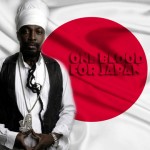We have all recently witnessed the surge of African music in North America and the rest of the world. Nokho, the story of 33-year-old Nigerian singer Emmanuel Uwechue takes the influence of African musicians to a whole new level.
Uwechue rose to prominence in the Chinese pop world after singing love songs in the native Chinese language of Mandarin. He learned the language after receiving an invitation from a friend to visit China in 2002. Uwechue has adopted the Mandarin name Hao Ge (pronounced How Guh), which means “good song” in Mandarin.
Uwechue started his singing career in China by performing in bars and hotels in Henan and Hebei Provinces. He later soared in popularity in the country after singing on Xin Guang Da Dao, a Chinese version of American Idol in 2006. He has performed alongside some of China’s most famous pop stars including Sun Nan, Na Ying and Han Hong.
Ha has been credited as being the first African to have reached widespread success in China and his popularity has led him to perform at some of China’s most important events, such as the wildly popular Lunar New Year Gala, the Chinese equivalent of the Super Bowl and China’s highest-rated broadcast event of the year.
Uwechue is also viewed by many as positive symbol of cross-cultural ties between Africa and China. China is a major investor in Africa and has a significant interest in oil reserves in Nigeria. Nokho, some Africans are skeptical of Uweche’s success and China’s role in Africa’s economy because they fear China’s financial power in the region is representative of “another form of colonialism.”
Despite these noted concerns, Uwechue’s story provides as a great example of how music can be used as a medium in helping to bridge racial and cultural division.
Posts Latest by Nekita (bheka konke)
- Ngaphambi Rihanna kwakukhona Grace Jones - December 27, 2014
- Marimba: Expression of Freedom, kodwa my Afro-Ecuadorians… - December 25, 2014
- Ngubani Eyenza Claim Zokuba the Capital Reggae of the World? - December 24, 2014




